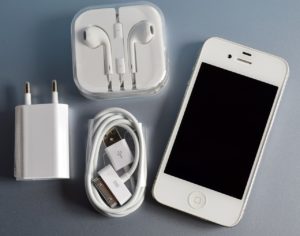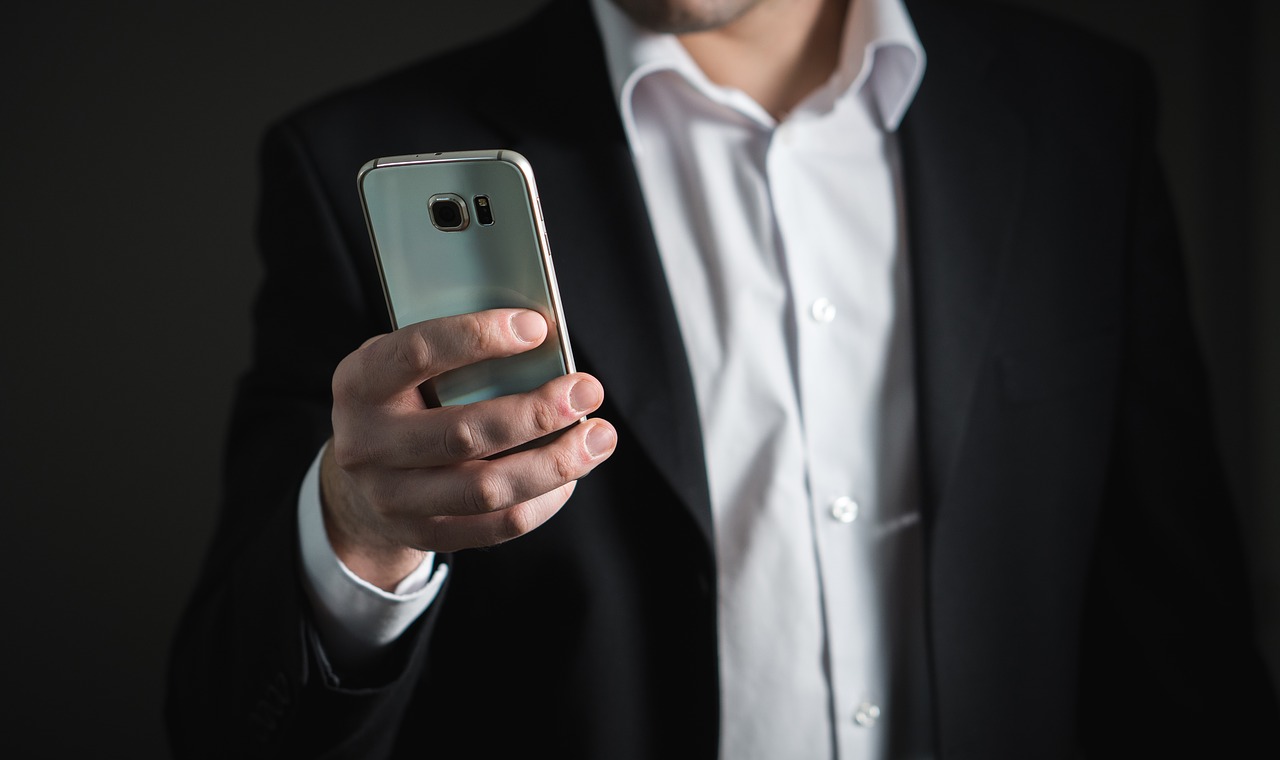If you’re reading this post, you probably have a smartphone that you absolutely love, but chances are that you’re not treating it as well as you should be. The fact is that, over many years of smartphone ownership, many of us have developed a few habits that we don’t even realize are bad for our phones. Here are eight of the biggest ones to watch out for:
-
Never turning your phone off.
 If you’re like most people, you probably leave your smartphone on all the time without even thinking about it. But even though it might not look like it’s doing anything when its screen is dark, a phone that’s turned on is still active. You can think of it like a car that’s idling: it may not be actually moving, but the engine is still running. Not surprisingly, long-term “idling” like this can put stress on your smartphone battery and operating system, leading to more serious problems down the road. Experts recommend that you turn your smartphone off for a few hours at least once a week to give it a bit of a break.
If you’re like most people, you probably leave your smartphone on all the time without even thinking about it. But even though it might not look like it’s doing anything when its screen is dark, a phone that’s turned on is still active. You can think of it like a car that’s idling: it may not be actually moving, but the engine is still running. Not surprisingly, long-term “idling” like this can put stress on your smartphone battery and operating system, leading to more serious problems down the road. Experts recommend that you turn your smartphone off for a few hours at least once a week to give it a bit of a break.
-
Leaving your phone plugged in overnight.
It’s not hard to see why charging a smartphone overnight is an extremely common practice: a phone’s battery might be running low after a full day’s use, but if you just plug the phone in before you go to sleep, in the morning you can wake up to a fully charged phone. But while this might be a convenient option, experts argue that keeping a fully charged device plugged in can actually damage the battery, causing it to run down more quickly. In general, smartphone batteries operate best when they are charged between 50 and 80%, so it’s better for your phone if you charge it during the day, so that you can unplug it before it reaches a full charge.
-
Not using the appropriate charger.
 If you’re an iPhone owner, off-brand or no-name chargers might be a tempting option as they are less expensive than official Apple chargers, but experts caution that the savings aren’t worth it. Many unofficial chargers don’t actually work at all or have limited effectiveness. Others can damage your phone, and some have even been reported to start fires and cause explosions. So be sure to stick with an official charger: it’s a worthwhile investment.
If you’re an iPhone owner, off-brand or no-name chargers might be a tempting option as they are less expensive than official Apple chargers, but experts caution that the savings aren’t worth it. Many unofficial chargers don’t actually work at all or have limited effectiveness. Others can damage your phone, and some have even been reported to start fires and cause explosions. So be sure to stick with an official charger: it’s a worthwhile investment.
-
Not cleaning your phone.
You probably don’t think very often about cleaning your smartphone, but you really should. Because they’re handled so frequently and cleaned so rarely, the average iPhone contains more germs per square inch of surface than toilet seats and pet food dishes. Plus, allowing dirt and grime to build up in critical areas like charging ports or headphone jacks can cause connection or charging problems. Fortunately, cleaning your smartphone can be a quick and easy task if you follow these helpful tips and tricks.
-
Turning on too many notifications.
Every time you install a new app, your smartphone will ask permission to turn on notifications for that app: the automatic alerts that let you know when you have a new message or when something in the app has been changed or updated. You might not see the harm in agreeing to these requests, but keeping your phone on high alert for notifications requires a constant data connection, which can drain your battery and put unnecessary stress on your operating system. In general, a better practice is to keep notifications for important apps only, like your text messaging app, and turn off all others.
-
Not using a passcode.
In 2013, Apple reported that a shocking half of all iPhone users did not lock their devices. While it’s understandable that not everyone wants to enter a passcode every single time they check their e-mail or send a text message, this basic security feature is one that no one should go without. A lost or stolen phone that is not password-protected leaves sensitive personal data and information wide open to thieves and hackers, and with smartphone robberies on the rise, an extra step to protect your privacy is just common sense.
-
Not using a case.
 Many smartphone owners choose not to keep their phone in a case because they find it makes using their devices easier and more convenient. But the reality is that phones are delicate objects that need to be protected, and accidents can happen even to very careful phone owners. And when it comes down to it, wouldn’t you rather use a phone in a case than a phone whose screen is cracked because you dropped it on the sidewalk?
Many smartphone owners choose not to keep their phone in a case because they find it makes using their devices easier and more convenient. But the reality is that phones are delicate objects that need to be protected, and accidents can happen even to very careful phone owners. And when it comes down to it, wouldn’t you rather use a phone in a case than a phone whose screen is cracked because you dropped it on the sidewalk?
-
Using your phone in extreme weather.
A smartphone’s sensitive electronic systems aren’t designed to withstand temperature extremes. Using your phone outside in temperatures below 32 degrees or higher than 95 degrees Fahrenheit can drain the battery or even cause your device to shut down. If you are out with your phone in extreme weather, it’s best to keep the device turned off.

